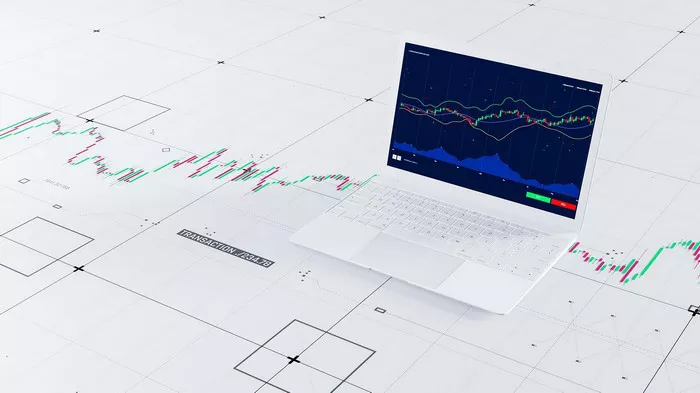In the world of stocks and financial markets, various terms and concepts are crucial for investors, analysts, and corporate executives to understand. One such term that often comes up in discussions about corporate governance, insider trading, and stock market regulations is the blackout period. Whether you’re a seasoned investor or a beginner, understanding what a blackout period is, why it exists, and how it impacts stock trading is vital. This article will explain everything you need to know about blackout periods in stocks, including their definition, purpose, and the consequences of violating them.
What Is a Blackout Period?
A blackout period in stocks refers to a specific time frame during which certain individuals, such as company executives, employees, or insiders, are restricted from buying or selling shares of their own company. These periods are established to prevent any potential misuse of material non-public information (MNPI) that could give these individuals an unfair advantage in the stock market. Blackout periods are designed to protect the integrity of the stock market and ensure that all investors have equal access to information before making trading decisions.
Key Characteristics of a Blackout Period
Blackout periods are typically implemented in a few key situations, most commonly related to the release of earnings reports or other significant company news. During these times, company insiders are restricted from trading the company’s stock to avoid the appearance or reality of insider trading.
1. Timeframe of the Blackout Period
The duration of a blackout period varies, but it usually lasts for a few weeks leading up to significant events, such as the release of quarterly or annual earnings reports. The exact dates and duration of the blackout period are determined by the company’s policies.
2. Who is Affected by Blackout Periods?
Insiders, which can include senior executives, board members, and employees with access to material non-public information, are the primary individuals affected by blackout periods. These restrictions apply to all personnel who may have access to sensitive financial data or upcoming news that could impact the company’s stock price.
3. Restrictions Imposed During a Blackout Period
During a blackout period, insiders are prohibited from engaging in any form of trading, including buying, selling, or even short-selling the company’s stock. This is to prevent any advantages gained from access to information that has not yet been made public.
Why Do Companies Have Blackout Periods?
Blackout periods serve several important purposes in maintaining the fairness, integrity, and transparency of the stock market. Here are the main reasons why companies implement blackout periods:
1. Prevent Insider Trading
The primary purpose of a blackout period is to prevent insider trading—the illegal practice of trading stocks based on non-public, material information. Insider trading undermines the trust and fairness of the financial markets, as it allows certain individuals to profit at the expense of others. A blackout period reduces the risk of insider trading by ensuring that insiders do not trade on information that could significantly affect the company’s stock price.
2. Ensure Equal Information Access
A blackout period is designed to ensure that all investors, both institutional and retail, have access to the same information at the same time. If insiders were allowed to trade before important news, such as earnings reports or new product launches, was made public, they would have an unfair advantage over other investors who have to wait for the official announcement.
3. Promote Corporate Transparency
Companies have a responsibility to provide clear and accurate information to their shareholders. A blackout period helps to ensure that investors can trust the information they receive. By instituting blackout periods around major news events, companies demonstrate a commitment to transparency and fairness in their financial reporting.
4. Protect the Company’s Reputation
Allowing insiders to trade on non-public information can damage a company’s reputation, especially if it leads to legal investigations or scandals. By instituting a blackout period, companies can avoid the appearance of unethical behavior and protect their public image.
When Does a Blackout Period Occur?
Blackout periods are generally linked to key corporate events, such as earnings reports or other significant announcements that might impact the company’s stock price. Here are some of the most common situations in which blackout periods occur:
1. Quarterly Earnings Reports
The most common blackout periods occur just before a company’s quarterly earnings report. These periods usually begin a few weeks before the scheduled release of earnings and last until after the report has been made public. The reason for this is that company insiders often have access to detailed financial information before it is disclosed to the public.
2. Annual Earnings Reports
Similar to quarterly earnings, the release of annual earnings reports often triggers a blackout period. Companies typically establish blackout periods ahead of their fiscal year-end reports to avoid any potential misuse of the information by insiders.
3. Mergers, Acquisitions, or Corporate Restructuring
Blackout periods may also be implemented before major corporate events, such as mergers, acquisitions, or reorganizations. These events can dramatically impact the stock price, and insiders may have knowledge of the deal before it is made public. A blackout period helps to ensure that no insider profits from this privileged information.
4. Other Material Events
Any significant event that could influence a company’s stock price—such as a major product launch, change in leadership, regulatory approval, or legal settlement—can trigger a blackout period. Companies will implement blackout periods to prevent trading based on non-public information about these events.
Who Enforces Blackout Periods?
Blackout periods are typically enforced by the company’s legal and compliance department. These teams are responsible for ensuring that insiders adhere to the company’s policies regarding trading restrictions and compliance with securities laws.
1. Legal and Compliance Departments
Companies with publicly traded stocks are required to have internal policies that comply with securities regulations. Legal and compliance teams establish these policies, monitor trading activities, and enforce blackout periods by providing training to employees and executives about the rules and penalties associated with insider trading.
2. The SEC (Securities and Exchange Commission)
In the U.S., the Securities and Exchange Commission (SEC) plays a critical role in overseeing corporate actions to prevent insider trading. Although the SEC does not directly enforce blackout periods, it is responsible for regulating insider trading and monitoring companies for any violations. If a company’s insider trading policies are violated, the SEC may investigate and impose penalties.
Penalties for Violating a Blackout Period
Violating a blackout period can have serious legal and financial consequences for individuals and companies. If an insider is found to have traded stocks based on material non-public information during a blackout period, they could face:
1. Criminal Penalties
Insider trading is illegal and can lead to criminal charges, including heavy fines and imprisonment. For individuals found guilty of trading on the basis of insider information, the penalties can be severe. The SEC and other regulatory bodies have the authority to pursue criminal charges against offenders.
2. Civil Penalties
In addition to criminal penalties, violators may be subject to civil penalties, which can include fines and disgorgement of any profits gained from the illegal trades. The SEC has the power to impose civil penalties on both the individuals involved and the company if the violation is deemed serious enough.
3. Reputation Damage
Beyond legal and financial consequences, a violation of a blackout period can significantly damage the reputation of the individual involved and the company they work for. The public perception of the company’s corporate governance practices may be negatively impacted, and the trust of investors and shareholders could be eroded.
4. Loss of Employment
In many cases, violating a blackout period may lead to termination from the company. Corporate policies often include strong penalties for employees who violate the company’s rules on insider trading and blackout periods.
How to Manage Blackout Periods in Your Stock Portfolio
For retail investors, understanding the implications of blackout periods can help you make better decisions when trading stocks. Here are some tips on how to manage your portfolio during blackout periods:
1. Monitor Earnings Reports and Other Key Dates
As an investor, staying informed about earnings release dates, corporate events, and other material news is essential. Many companies announce their earnings release schedules months in advance, so you can plan your investments around those dates. By understanding when blackout periods might occur, you can avoid trading stocks that could be subject to insider trading restrictions.
2. Pay Attention to Insider Transactions
Keep an eye on insider transactions through public filings. The SEC requires insiders to report their stock trades, and this information is available to the public. If there is a sudden flurry of insider buying or selling just before a blackout period, it could signal that important news is about to be released.
3. Be Cautious During Major Corporate Events
During periods of corporate change, such as mergers, acquisitions, or leadership changes, the stock price can be volatile. Make sure to research the company thoroughly and consider any blackout period restrictions that might impact insider trading during these times.
Conclusion
A blackout period in stocks serves an essential role in ensuring fairness, transparency, and integrity in financial markets. By restricting insiders from trading on non-public information, blackout periods protect the interests of all investors and maintain confidence in the stock market. While blackout periods are most commonly associated with earnings reports and major corporate events, they can also be triggered by any material news that could influence a company’s stock price.
For both insiders and retail investors, it is important to understand the significance of blackout periods, the rules governing them, and the consequences of violating them. By staying informed and abiding by these regulations, investors and companies alike can contribute to a more transparent and ethical stock market environment.
Related topics:

































